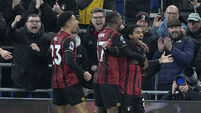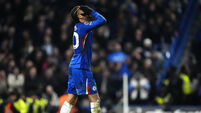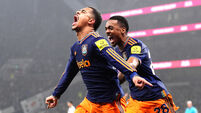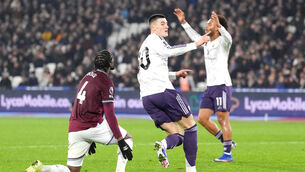Bacuzzi’s super squad: Brilliant Hibs team were led by a true gentleman

The Dave Bacuzzi I knew on the pitch was a graceful full-back, ballerina-like, but tough. In the tackle he invariably came out on top. He was hard, as he had to be, but fair.
His great team brought success and glamour and flamboyance to Cork Hibernians. So meeting him twice was a thrill.











